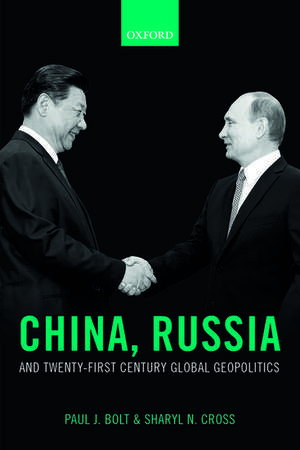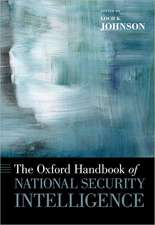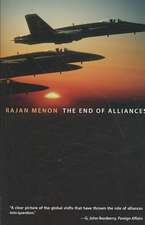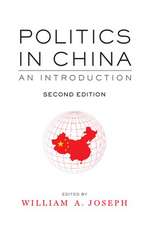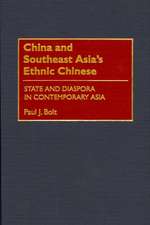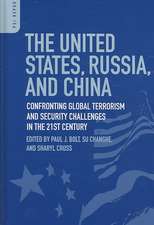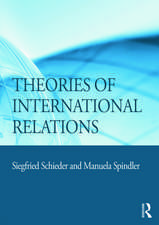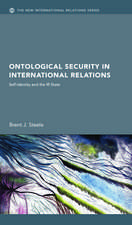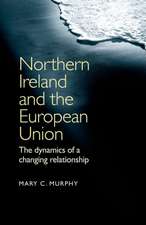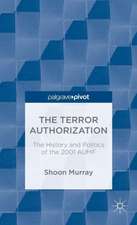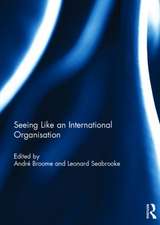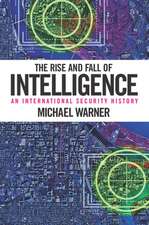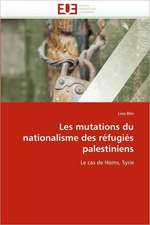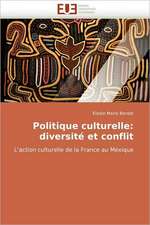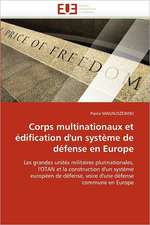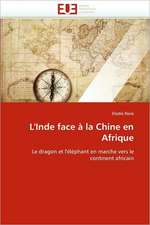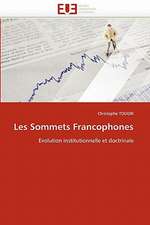China, Russia, and Twenty-First Century Global Geopolitics
Autor Paul J. Bolt, Sharyl N. Crossen Limba Engleză Hardback – 15 feb 2018
investments. In the military realm, Russia sells advanced arms to China, and the two countries engage in regular joint exercises. Diplomatically, these two Eurasian powers take similar approaches to conflicts in Ukraine and Syria, and also cooperate on non-traditional security issues including
preventing coloured revolutions, cyber management, and terrorism. These issue areas illustrate four themes. Russia and China have common interests that cement their partnership, including security, protecting authoritarian institutions, and re-shaping aspects of the global order. They are key
players not only influencing regional issues, but also international norms and institutions. The Sino-Russian partnership presents a potential counterbalance to the United States and democratic nations in shaping the contemporary and emerging geopolitical landscape. Nevertheless, the West is still
an important partner for China and Russia. Both seek better relations with the West, but on the basis of 'mutual respect' and 'equality'. Lastly, Russia and China have frictions in their relationship, and not all of their interests overlap. The Sino-Russian relationship has gained considerable
momentum, particularly since 2014 as Moscow turned to Beijing attempting to offset tensions with the West in the aftermath of Russia's annexation of Crimea and intervention in Ukraine. However, so far, China and Russia describe their relationship as a comprehensive 'strategic partnership', but they
are not 'allies'.
Preț: 615.47 lei
Preț vechi: 843.03 lei
-27% Nou
117.77€ • 123.21$ • 97.83£
Carte tipărită la comandă
Livrare economică 22-28 martie
Specificații
ISBN-10: 0198719515
Pagini: 334
Dimensiuni: 163 x 239 x 27 mm
Greutate: 0.66 kg
Editura: OUP OXFORD
Colecția OUP Oxford
Locul publicării:Oxford, United Kingdom
Descriere
This book provides a comprehensive analysis of the Chinese-Russian bilateral relationship, grounded in a historical perspective, and discusses the implications of the burgeoning 'strategic partnership' between these two major powers for world order and global geopolitics.
The volume compares the national worldviews, priorities, and strategic visions for the Chinese and Russian leadership, examining several aspects of the relationship in detail. The energy trade is the most important component of economic ties, although both sides desire to broaden trade and
investments. In the military realm, Russia sells advanced arms to China, and the two countries engage in regular joint exercises. Diplomatically, these two Eurasian powers take similar approaches to conflicts in Ukraine and Syria, and also cooperate on non-traditional security issues including
preventing coloured revolutions, cyber management, and terrorism. These issue areas illustrate four themes. Russia and China have common interests that cement their partnership, including security, protecting authoritarian institutions, and re-shaping aspects of the global order. They are key
players not only influencing regional issues, but also international norms and institutions. The Sino-Russian partnership presents a potential counterbalance to the United States and democratic nations in shaping the contemporary and emerging geopolitical landscape. Nevertheless, the West is still
an important partner for China and Russia. Both seek better relations with the West, but on the basis of 'mutual respect' and 'equality'. Lastly, Russia and China have frictions in their relationship, and not all of their interests overlap. The Sino-Russian relationship has gained considerable
momentum, particularly since 2014 as Moscow turned to Beijing attempting to offset tensions with the West in the aftermath of Russia's annexation of Crimea and intervention in Ukraine. However, so far, China and Russia describe their relationship as a comprehensive 'strategic partnership', but they
are not 'allies'.
Recenzii
...the authors "went to the field" to create a remarkably balanced, indepth, detailed, and uptodate account of some of the most important aspects of ChinaRussia relations, in which the voices of Chinese and Russian scholars are consistently heard.
Relations between Eurasia's two great powers, Russia and China, have for decades been a looming concern for the United States and its regional allies, yet the Beijing-Moscow relationship has rarely received direct and sustained attention, thanks to expert communities working in separate silos. Cross and Bolt have broken right through the silos, and in doing so done a great service to scholars, policymakers and the broader public interested in the future of a vast region home to vital trade, energy and security links.
As the relationships between the US and both China and Russia become tense, the question becomes if China and Russia can work together against the US and other Western powers and challenge the US-led world order. This lucid, insightful, and timely book seeks answers to this important question by examining the Sino-Russo partnership and its implications for the US. A must read for anyone interested in the great power politics in the increasingly competitive world of the 21st century.
This brilliant book is an essential if sober big read for Western leaders, scholars, and should-be-interested publics. Geopolitics & Machopolitik are back big time. China and Russia believe Western weakness legitimizes the authoritarianism they espouse. This is not bedtime reading.
With the United States as the sole superpower, Russia as the heir of a previous superpower and China as the candidate of future superpower, trilateral relations among them are underpinning peace and development of both current and future global order. This book provides insightful perspectives to understand the strategic triangle in today's world.
Notă biografică
Paul J. Bolt is a Professor of Political Science at the United States Air Force Academy, where he has taught since 1997. His publications include The United States, Russia and China: Confronting Global Terrorism and Security Challenges in the 21st Century (co-edited with Su Changhe and Sharyl Cross, Praeger Security International, 2008), China's Nuclear Future (co-authored with Albert S. Willner, Lynne Rienner, 2006), and American DefensePolicy (co-edited wtih Paul J. Bolt, Damon V. Coletta, and Collins G. Shackelford Jr, John Hopkins University Press, 2005).Dr. Sharyl N. Cross is Director of the Kozmetsky Center at St. Edward's University in Austin and Global Policy Scholar at the Kennan Institute Woodrow Wilson International Center for Scholars in Washington DC. Her publications include Shaping South East Europe's Security Community: Trust, Partnership Integration (co-edited with Savo Kentera, R. Craig Nation, and Radovan Vukadinovic, Palgrave, 2013), and The United States, Russia and China: Confronting Global Terrorism andSecurity Challenges in the 21st Century (co-edited wtih Paul J, Bolt and Su Changhe, Praeger Security International , 2008).
